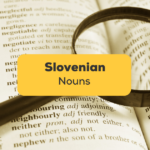Whether you are interested in Chinese food, the Chinese language or just the culture of China, you should definitely stop by the country. With a population of over a billion, there will be plenty of people to meet there.
If you do ever plan to visit China, you will need to arm yourself with some of the language. Not everyone is fluent enough to speak English, and so learning a few important words will be incredibly helpful. Here are a few to help you get started.
Saying Hello In Chinese
Perhaps the most famous Chinese word known by everyone – even those who haven’t studied the language – is ‘nǐ hǎo’ (你好). Very literally, this translates to you good? It is a semi formal way to greet others you come into contact with.
Of course, there are a few other words and phrases you can say as you meet someone. For a more polite greeting, you can say ‘nín hǎo’ (您好). The ‘nín’ in this case is a more polite form for the word ‘you’.
While the phrase ‘nǐ hǎo ma?’ (你好吗) is often used as a follow up questions after saying hello, it can also be used as a greeting. It means ‘how are you’ and, much like in English, it can be an acceptable way to start a conversation.
Finally, a common way to say hello over the phone is ‘wèi’ (喂).
Greetings at Different Times of Day In Chinese
Good morning is a pleasant way to greet people early in the day. You can either say ‘zǎo’ (早) (literally means ‘early’) or the longer version ‘zǎo’ān’ (早安).
From around midday, you can say ‘xiàwǔ hǎo’ (下午好) for ‘good afternoon’. You could also just say ‘nǐ hǎo’, which is more common.
For ‘good night’, ‘wǎn’an’ (晚安) can be used meaning ‘peaceful night’ literally. ‘wǎn shànɡ hǎo’ (晚上好) can be used earlier in the evening.
Saying Goodbye In Chinese
Unfortunately, with every greeting there must be a goodbye. Why not make it more meaningful by saying it in their language? The most basic way to say ‘goodbye’ is ‘zàijiàn’ (再見). If you have made plans to meet the next day, you can say instead ‘míngtiān jiàn’ (明天見) which means ‘see you tomorrow’.
As you may have noticed from the previous two examples, they share one character. The character ‘jiàn’ (見) means ‘see’. By adding a time frame before ‘jiàn’, it is possible to give a more exact time when you will meet again. So ‘xiàwǔ jiàn’ (下午見) would be ‘see you in the afternoon’ for example.
Another common phrase is ‘zàihuì’ (再会) which translates to something similar to ‘until we meet again’. If all of this is too difficult, then locals in major cities and tourist locations will still likely understand ‘bàibài’ (拜拜). This is of course a loanword from the english phrase ‘bye bye’.
Other Basic Phrases In Chinese
Now is a good opportunity to learn a few basic phrases that you will need day to day.
Thank you or ‘xiè xie’ (谢谢) should definitely be on your list of words to learn. You should also be prepared with ‘I’m sorry’ or ‘duì bu qǐ’ (对不起), just in case.
Finally, to finish off, we have perhaps the most important phrases. To say ‘do you speak English?’, you use ‘nǐ huì shuō yīng yǔ ma?’ (你会说英语吗?). Likewise, you will also need ‘wǒ bú huì zhōng wén’ (我不会中文), which means ‘I don’t speak Chinese’. ‘You’re welcome’ or ‘bù kèqì’ (不客气) may also be useful to know.
So, to summarize these greetings (and other important phrases) in Chinese:
Hello: ‘nǐ hǎo’ (你好)
Hello (polite): ‘nín hǎo’ (您好)
Hello (over the phone): ‘wèi’ (喂)
How are you?: ‘nǐ hǎo ma?’ (你好吗)
Good Morning: ‘zǎo’ (早) or ‘zǎo’ān’ (早安)
Good Afternoon: ‘xiàwǔ hǎo’ (下午好)
Good Evening: ‘wǎn shànɡ hǎo’ (晚上好)
Good Night: ‘wǎn’an’ (晚安)
Goodbye: ‘zàijiàn’ (再見)
Bye bye: ‘bàibài’ (拜拜)
See you….: ‘…..jiàn’ (見)’
See you tomorrow: ‘míngtiān jiàn’ (明天見)
See you in the afternoon: ‘xiàwǔ jiàn’ (下午見)
Until we meet again: ‘zàihuì’ (再会)
Thank you: ‘xiè xie’ (谢谢)
I’m sorry: ‘duì bu qǐ’ (对不起)
You’re welcome: ‘bù kèqì’ (不客气)
Take Your Time and Enjoy
As you can see, there are so many different ways to greet and say goodbye to people. Feel free to mix it up a little if you want a challenge. This is just a small selection of phrases that are a great starting place for learning. Each dialect also has its own variations that you can master if you really want to stand out.
For your flight over to China, why not keep yourself busy with the Ling App. Use it to make sure you remember these phrases and much more through tests, games, and other activities.


















